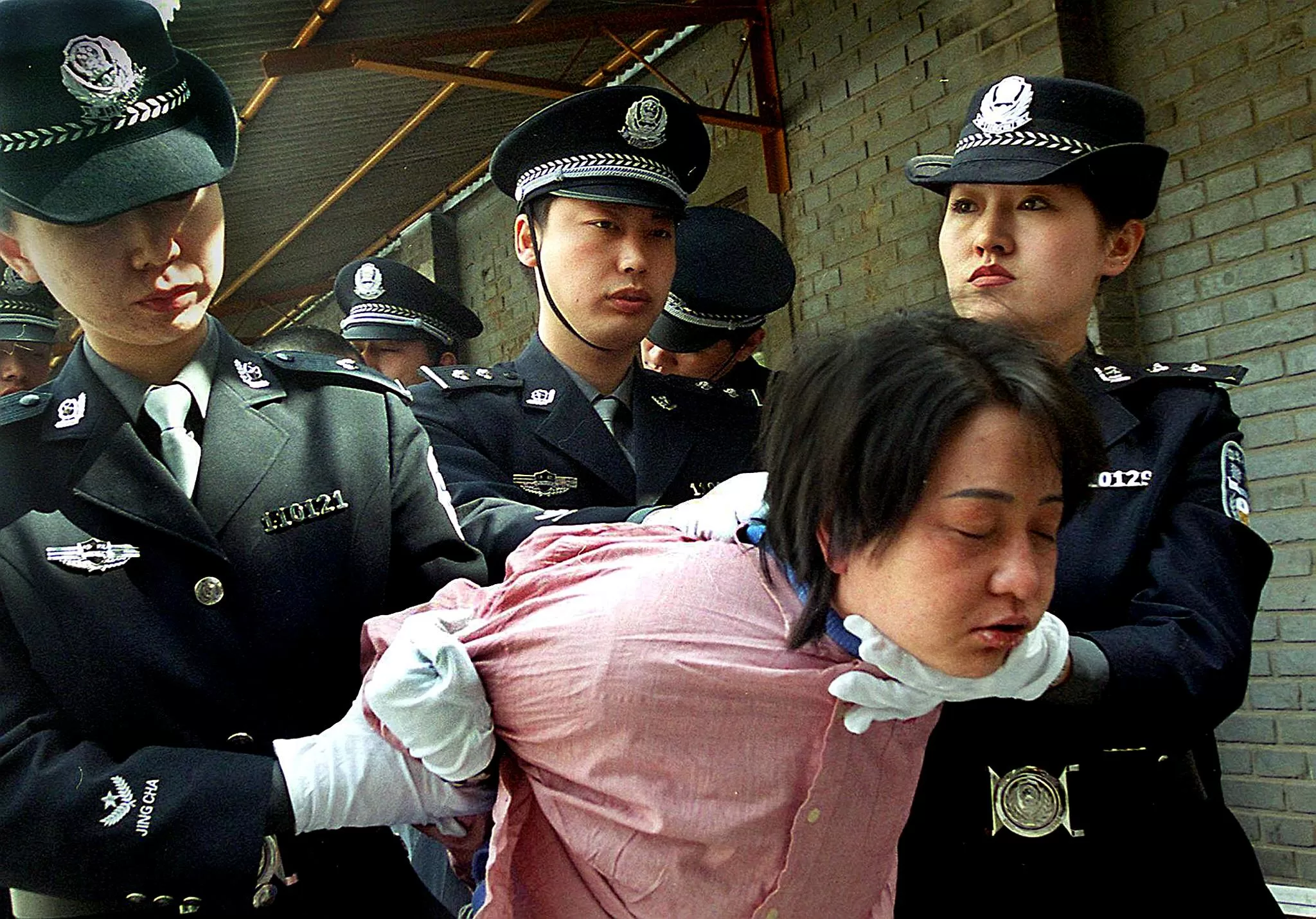The Middle Eastern country is among the deadliest for executions – behind China, where “thousands” have reportedly been slaughtered for dissent and crimes such as drug trafficking and bribery.
Iran‘s increased use of the death penalty for drug offences is said to have contributed to 2023 being the deadliest year for executions since 2015 – when 1,634 known executions were carried out.
Executions last year increased in frequency in the United States and in Somalia, while China executed “thousands”.
North Korea meanwhile enacted a new law making the death penalty a possible punishment for not using the native Korean language.
A total of 1,153 executions were carried out last year, according to Amnesty’s new report “Death Sentences and Executions”.
The figure does not include the thousands believed to have taken place in China – an increase of more than 30 per cent from 2022.
And there was a 20 per cent increase in the number of death sentences handed out globally, taking the total to 2,428.
Amnesty claimed China was once again the world’s lead executioner, but it was unable to put forward figures for the country – or for North Korea and Vietnam – due to “state secrecy”.
Official reports from such countries indicated the death penalty was being used as a tool to maintain control and repress dissent.
China, Iran, Saudi Arabia, Somalia, and the United States last year carried out the most executions in the world.
Iran was said by Amnesty to have carried out 74 per cent of all recorded executions, while Saudi Arabia carried out 15 per cent.
Executions were known to have occurred in 16 countries overall – the lowest number ever recorded by Amnesty.
No executions were recorded in Belarus, Japan, Myanmar, or South Sudan, despite each carrying out executions in 2022.
Amnesty International’s Secretary General Agnès Callamard said: “The huge spike in recorded executions was primarily down to Iran.
“The Iranian authorities showed complete disregard for human life and ramped up executions for drug-related offences, further highlighting the discriminatory impact of the death penalty on Iran’s most marginalised and impoverished communities.”
Just hours before Amnesty declared China the world leader in executions, a prisoner was killed in Saudi Arabia
JUST before the rights group’s announcement that global executions soared to highest level in almost a decade and China led the pack, a man was killed in Saudi Arabia.
Saudi national Muwaffaq bin Saleh bin Sunaid Al-Harbi was executed on Tuesday for “committing a terrorist crime”, according to the country’s Interior Ministry.
It said he was accused of joining a terrorist group and pledging allegiance to its leader, carrying out the group’s orders by helping kill a man, financing terrorism, and possessing weapons with the intention of carrying out criminal acts.
The ministry did not say how the execution was carried out.
In March 2022, Saudi Arabia carried out its biggest mass execution in decades, killing 81 men including seven Yemenis and one Syrian.
The number dwarfed the 67 executions reported in the kingdom in all of 2021 and the 27 in 2020.
Offences ranged from murder to joining militant groups or holding “deviant beliefs”.
Rights groups have accused Saudi Arabia of enforcing restrictive laws on political and religious expression, and criticised it for using the death penalty, including for defendants arrested when they were minors.
Saudi Arabia denies accusations of human rights abuses and says it protects its national security through its laws.
At least 853 people were executed in Iran in 2023 – a 48 per cent rise from 576 in 2022 – including at least 24 women and five children.
Of the executions recorded in Iran, some 545 were unlawfully carried out for acts such as drug-related offences, robbery, and espionage – crimes which should not result in the death penalty, under international law.
Fifty-six per cent of Iran’s executions were carried out as punishment for drug-related offences.
The number of executions in the US rose from 18 in 2022 to 24 last year, as bills to carry out killings by firing squad were introduced in Idaho and Tennessee and a measure to expand the substances used in lethal injections was considered in Montana.
Another new law was signed in South Carolina to conceal the identities of those involved in carrying out executions.
Amnesty’s Callamard said: “A select number of US states demonstrated a chilling commitment to the death penalty and a callous intent to invest resources in the taking of human life.”
The number of executions in sub-Saharan Africa more than tripled from 11 in 2022 to 38 last year, and death sentences rose by 66 per cent from 298 in 2022 to 494 last year.








